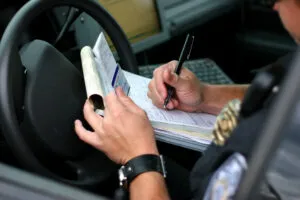California Vehicular Assault Lawyer – Penal Code 245(a)(1) PC
How Can My Rights Law’s Vehicular Assault Lawyer Help Me?
If you are charged with vehicular assault in California, get in touch with the skilled vehicular assault lawyers at My Rights Law, who have defended many drivers against vehicular assault charges and other traffic violations. To learn more, reach out to My Rights Law’s traffic violations lawyer by calling (888) 702-8845 or contacting us through our secure web form.
- 1. What Is The Law On Vehicular Assault In California?
- 2. What Are The Penalties And Sentences For Vehicular Assault In California?
- 3. What Are Some Crimes That Are Related To A Vehicular Assault?
- 4. What Must The Prosecutor Prove For Vehicular Assault?
- 5. What Are Some Defenses To Vehicular Assault?
- 6. Call My Rights Law’s California Vehicular Assault Attorneys Today
What Is The Law On Vehicular Assault In California?
Vehicular assault is when a person uses a vehicle to threaten a physical injury to another person. There is no specific statute against vehicular assault. The actual violation is an assault with a deadly weapon California Penal Code 245(a)(1)[1]. In such a case, the vehicle itself is considered a deadly weapon[2]. Furthermore, the prosecutor can charge you with another simultaneous offense on top of vehicular assault, depending on the circumstances.
In California, according to PC 245(a)(1) a person commits an assault with a deadly weapon (“vehicular assault”) when using a tool capable of causing severe injury or death to another person[3]. Nearly anything that can cause harm to another person can be considered a deadly weapon.
What Are The Penalties And Sentences For Vehicular Assault In California?
Vehicular assault is considered a wobbler crime, meaning that it could be charged as a misdemeanor or a felony, depending on the circumstances. A misdemeanor conviction can result in up to one year in the county jail, and you can receive a fine of up to $1,000. A felony conviction can result in up to four years in prison. If the victim is a police officer or a firefighter, the length of time can extend to five years in prison, and you may receive a fine of up to $10,000.
What Are Some Crimes That Are Related To A Vehicular Assault?
There are related crimes the prosecutor can charge you with, in addition to vehicular assault. These additional crimes can increase the penalty and/or the sentence. Other crimes related to vehicular assault include (but are not limited to):
- Evading a police officer in a vehicle
- Felony reckless evading
- Evading causing injury or death
- Driving under the influence
- Vehicular manslaughter
- Vehicular manslaughter while intoxicated
- Attempted murder
- Misdemeanor resisting arrest
What Must The Prosecutor Prove For Vehicular Assault?
In order to convict you of vehicular assault, the prosecutor must prove that:
- The defendant acted with a deadly weapon in a way that could bring direct contact on another person;
- The force was likely to produce great bodily harm[4];
- The defendant acted willfully[5]; and
- The defendant was aware to a reasonable degree of certainty that their act would directly and likely result in contact and harm another person.
What Are Some Defenses To Vehicular Assault?
Lack of intent. If you did not intend to cause harm to another person, the Court should not convict you for vehicular assault. For example, if you are a truck driver driving for many hours without a break, you might start falling asleep. You close your eyes for a couple of seconds because you are exhausted. While you close your eyes, you swerve into oncoming traffic. While in the opposite lane, there is another car. The person in the car sees you and starts honking his horn to get your attention. The horn wakes you up, and you suddenly swerve back to the correct lane and avoid an accident. In this situation, the Court should not convict you with vehicular assault because you did not intend to hurt anyone.
Self-defense. Self-defense may be an appropriate defense that can prevent the Court from convicting you under certain circumstances. For example, a biker gang was following you while you were driving your car. Suddenly, one of the bikers pulls up right next to your driver’s seat window and points his pistol at you. You swerved towards him to attempt to stop him from shooting you. Your vehicular assault charge may warrant a self-defense argument in such a case. You may be found not guilty of vehicular assault.
The act was unlikely to produce great bodily harm to a person. Another argument that your attorney can make is that your action was unlikely to produce great bodily harm to a person. For example, you were driving your vehicle down a street and saw a deer on the road. Instead of slowing down to avoid hitting the deer, you slammed on your gas pedal, and your car accelerated. If this is the case, the Court should not convict you with vehicular assault because, if you caused harm to anyone, it would not have been to a person. The law requires you to intend to harm another person. Because a deer is not another person, the Court should not convict you for vehicular assault.
Call My Rights Law’s California Vehicular Assault Attorneys Today
If you are charged with vehicular assault, you should consult with a lawyer for help right away. The skilled vehicular assault lawyers at My Rights Law will work tirelessly to protect your rights and driving privileges. To learn more, reach out to My Rights Law by calling (888) 702-8845 or by completing our secure web form.
Other traffic violations crimes we defend include: Hit And Run Defense
FOOTNOTES
[1] California Penal Code 245(a)(1)
[2] People v. Aguilar (1997) 16 Cal.4th 1023
[3] People v. Rodriguez (1999) 20 Cal.4th 1
[4] People v. Rodriguez (1999) 20 Cal.4th 1
[5] People v. Lara (1996) 44 Cal.App.4th 102













